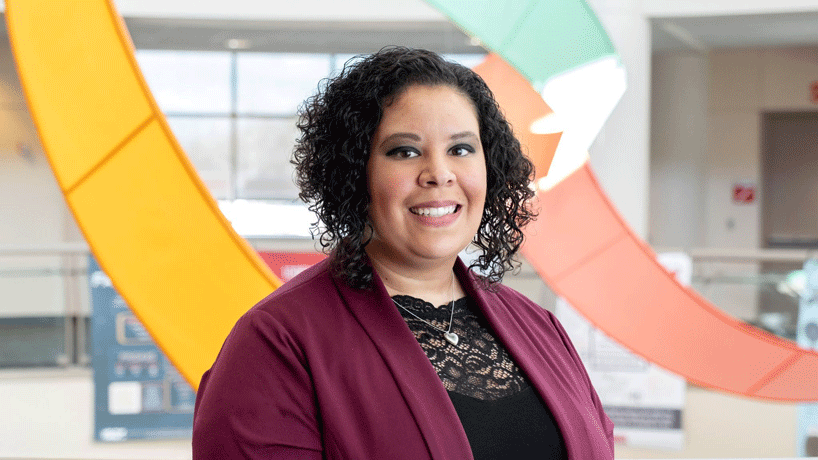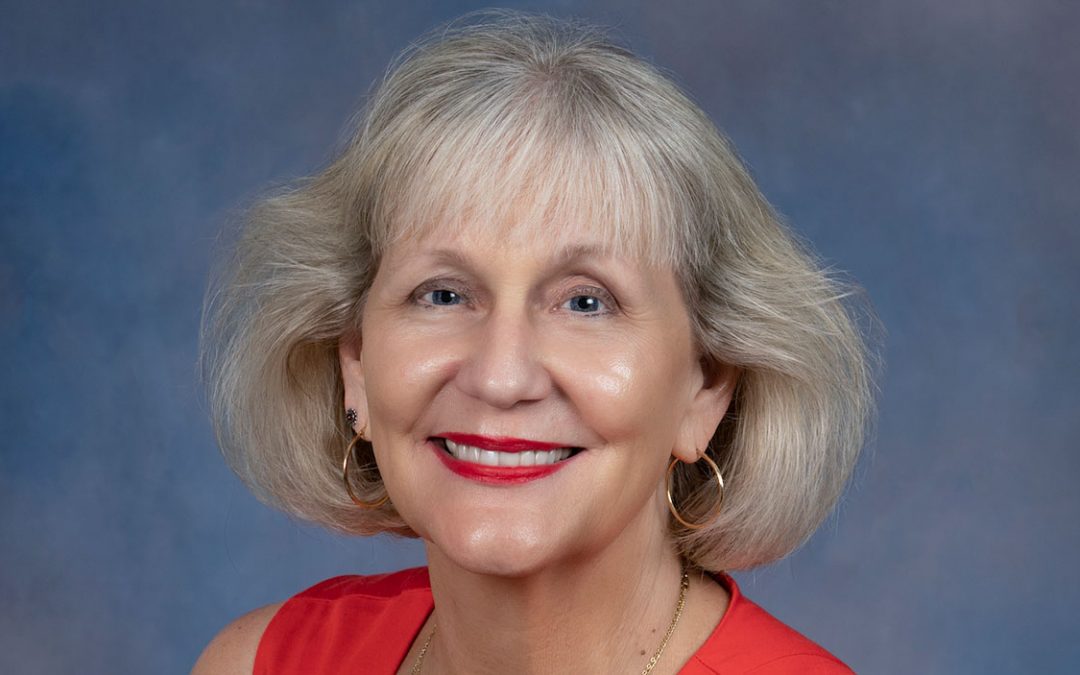
Assistant Registrar Danielle Faucett was a first-generation college student when she started at UMSL. She has gone on to earn three degrees from the university and is working toward a PhD.
Danielle Faucett had little knowledge about the enrollment process when she started out as a first-generation college student.
After three degrees and series of jobs at the University of Missouri–St. Louis, Faucett, now an assistant registrar, became an instrumental figure re-arranging the class schedules across campus during the pandemic.
With the knowledge gained from that experience, Faucett published her first article, “PIVOT! Course Scheduling in the Age of a Pandemic,” in the Winter 2022 issue of the American Association of Collegiate Registrars and Admissions Officers College and University Journal, which was released last month. She wrote the article in the course of pursuing her PhD in educational leadership and policy studies.
Faucett and her team manage course scheduling, class locations, final exams and the submission of grades by faculty. Over the past two years, they have had to make swift changes to accommodate the dictates of the pandemic. Though the process has been demanding, Faucett has pushed on to continually adapt to the evolving nature of the work.
Early on, switching to remote learning was easier, Faucett said. It became more difficult for subsequent semesters because the schedules were already set. Faucett and her team worked around the clock to transition many courses to online or blended formats for the summer, fall and spring semesters.
Her department coordinated with the Office of Academic Affairs, and other academic leaders, departments and schedulers to decide how to strategically offer courses.
“We had to really look at what we were offering,” Faucett said. “‘Do we do this online? Do we do some in person?’ We had to figure out how we were going to shift the schedules and reflect that in the student information system.
“We didn’t want to take the online option away by saying, ‘Now, you’re back in person’, especially since we had a lot of online degrees coming up with Missouri Online and eLearning. We wanted to make sure we were respecting that.”
Additionally, another major challenge was determining how to offer in-person classes while maintaining safety precautions for faculty, staff and students.
Navigating this unprecedented experience perfectly positioned Faucett to share her expertise, as many universities have had to undergo this process.
She hadn’t ever thought of writing an article, but her faculty advisor, Professor E. Paulette Isaac-Savage, encouraged her to get published before completing her PhD. AACRAO, where Faucett serves as the vice chair of the organization’s enrollment management and retention committee, seemed like the perfect outlet for the article.
An article about the struggles of working in the registrar’s office during a pandemic was a welcome addition to the AACRAO journal and allowed Faucett, who’s presented on registrar processes at different events, to continue establishing herself as an expert in her field.
Faucett has come a long way from where she started in higher education as an UMSL student in 2006. She holds the achievement and the journey as an honor.
“Being a first-generation graduate means I’ve had educational opportunities that my parents were not fortunate to have,” Faucett said. “I have been given the chance to expand the progress of my family while improving myself both personally and professionally. It also means I was able to complete a dream held by both myself and my mother, and that I can continue to inspire future generations by taking that first leap of faith. I had to trust that everything would turn out all right with the limited knowledge I had.”
Everything did turn out all right. She has taken full advantage of the opportunity to pursue higher education and holds a BA in communication, an MA in communication and an MEd in adult education, all from UMSL.
By adding her PhD to her other skills and professional experience – including working as an adjunct professor at Lindenwood University for three years – Faucett could take her career in a variety of options in the future.
“I haven’t really thought a lot about it,” Faucett said, pondering what’s to come. “I know I want to stay in higher education, and I do love working in the registrar’s office, so that’s a path I think is open hopefully. I’ve also taught before. So, I wouldn’t mind teaching as well on the side, but I think my primary focus will be administration in higher education.”














